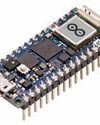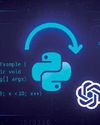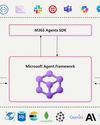Intentar ORO - Gratis
The Challenges Of Using Ai Tools To Generate Code
Open Source For You
|September 2023
Enterprises must understand the obligations that underline OSS licences and adopt proactive measures to meet them while using AI-generated code. Otherwise, they may end up in legal entanglements.

Artificial intelligence, is a technique used to train machines to work and behave like humans. It encompasses various training methods and software like machine learning, neural network and deep learning, natural language processing, and more.
As the field of artificial intelligence (AI) advances, generative AI (GAI) techniques are gaining enormous attention for their ability to generate code and provide suggestions based on prompts that are provided by developers, thereby accelerating the software development process.
These AI models are typically trained on billions of lines of code, most of which are open and freely available to the public. Based on the developers’ prompts, these AI tools generate a fully functional code or code snippets.
With the rise in the use of AI tools and developers utilising them to generate creative outputs, GAI will fundamentally change the way that software is built. Whether they are developing or using AI tools, organisations must understand the opportunities and risks involved, and evolve policies, processes, and governance to address them. This includes open source software codes.
A glimpse of open source software licences
Open source software (OSS) has become a major pillar of modern software development, fostering collaboration and innovation. With the increase in the availability of generative AI models, it has become essential to address the complexities of the code governed by open source licences.
The OSS licence allows users to access, use, modify, distribute, or redistribute the open source software. However, many OSS licences impose different obligations and conditions on the use and distribution of the software. These can range from providing attribution to specifying that the OSS modified code must be released under the same licence.
Esta historia es de la edición September 2023 de Open Source For You.
Suscríbete a Magzter GOLD para acceder a miles de historias premium seleccionadas y a más de 9000 revistas y periódicos.
¿Ya eres suscriptor? Iniciar sesión
MÁS HISTORIAS DE Open Source For You

Open Source For You
Lux: Excellence in Data Analysis and Visualisation
Data is sacred in today's world, and Python libraries like Lux make data analysis and visualisation so much easier.
2 mins
January 2026

Open Source For You
The Role of Open Source in Building Modern Data Infrastructure
It's no secret that open source is emerging as the backbone of modern data infrastructure. Here’s a list of the core open source technologies used to deploy this infrastructure, along with some real-world examples and a brief on why open source matters.
3 mins
December 2025

Open Source For You
The Whispering Machines: How Open Source is Bringing Intelligence to the Tiniest Devices
Built on open source frameworks, TinyML is enabling complex machine learning models to run on the microcontrollers embedded in connected devices, bringing artificial intelligence to the very edge of the network.
3 mins
December 2025

Open Source For You
Setting Up Snort to Secure Your Network
Snort is a popular, open source intrusion detection system that monitors traffic in real time to detect malware. Here’s a detailed explanation of how to set it up on Ubuntu and test it by generating traffic from another system.
7 mins
December 2025

Open Source For You
When AI Meets DevOps to Build Self-Healing Systems
Traditional DevOps, with its rule-based automation, is struggling to work effectively in today’s complex tech world. But when combined with AlOps, it can lead to IT systems that predict failures and solve issues without human intervention.
7 mins
December 2025

Open Source For You
How to Automate Java Code Modernisation
This short guide illustrates that automating Java code modernisation with Python and OpenAI API is not just possible-it's remarkably effective.
5 mins
December 2025

Open Source For You
The Quest to Build a Quantum Computer
The road to large-scale quantum computing is long and hard, with incremental advances paving the way. But the destination is in sight.
12 mins
December 2025

Open Source For You
Job Opportunities: What's Hot in the Cloud Space?
If there's one field that refuses to slow down, it's cloud computing. Even as automation and AI reshape roles, cloud adoption continues to surge. From startups deploying microservices overnight to enterprises migrating decades of legacy systems, cloud remains the engine of digital transformation. For professionals, this means one thing: skills that live in the cloud won't come down anytime soon.
2 mins
December 2025

Open Source For You
Securing Client Identity with Post-Quantum Cryptography
Here's a quick tutorial on how to build a secure, real world client-server model that establishes client identity by using CRYSTALS-Dilithium, a post-quantum cryptography algorithm.
3 mins
December 2025

Open Source For You
Unlocking the Power of Multi-Agent Solutions with the Microsoft Agentic Framework
The Microsoft Agentic Framework is rapidly emerging as a cornerstone for developers, architects, and technology leaders seeking to build dynamic, intelligent systems powered by multiple collaborating agents. In an era where automation, distributed intelligence, and adaptive software are increasingly vital, this framework offers robust tools and features to accelerate the design and deployment of agent-based solutions.
6 mins
December 2025
Translate
Change font size

